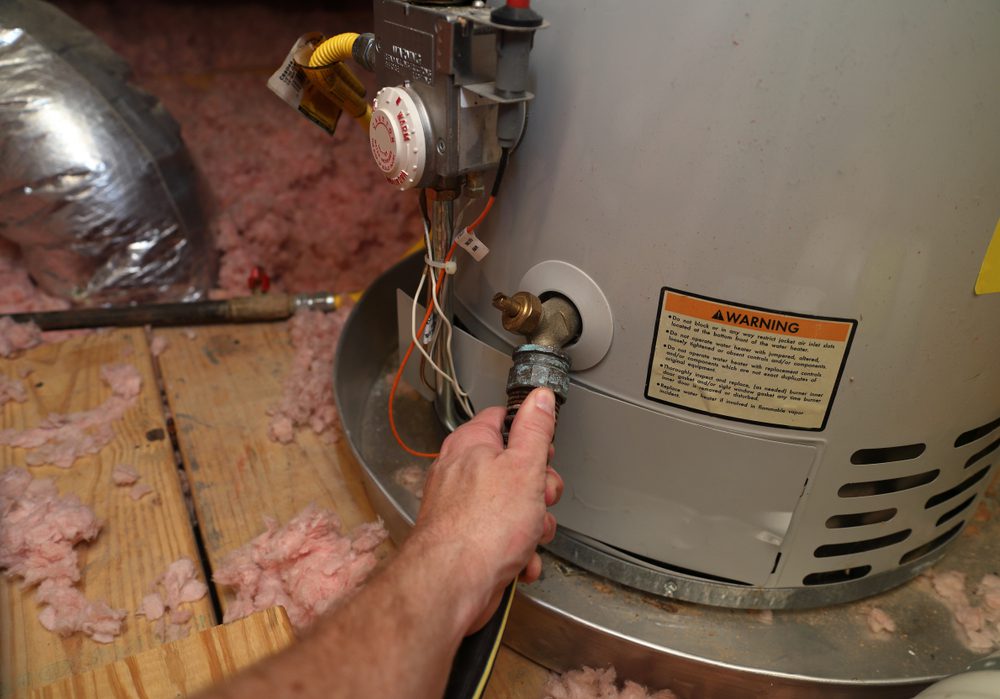Tackling the Typical Water Heater Crisis Scenarios
Tackling the Typical Water Heater Crisis Scenarios
Blog Article
Right here in the next paragraph you'll find some superb insights when it comes to Common Hot Water Heater Problems.

A water heater is just one of one of the most important standard devices that can be found in a home. With water heaters, you don't require to undergo the stress of heating water manually every single time there is a need to wash, wash, or the dishes. Nonetheless, there is always a possibility that your hot water heater would certainly break down just like the majority of mechanical devices.
It is important to keep in mind any kind of little breakdown as well as tackle it swiftly before points leave hand. Most times, your water heater begins to malfunction when there is an accumulation of debris as a result of continuous use. As a preventative measure, routine flushing of your water heater is recommended to prevent sediment buildup as well as protect against functional failure.
Usual hot water heater emergencies and exactly how to manage them
Too little hot water
It might be that the water heating unit can't sustain the warm water demand for your apartment. You can upgrade your water heating system to one with a bigger capability.
Changing water temperature.
Your water heater could start producing water of different temperatures typically ice cold or scalding warm. There could be a demand to change either the home heating or the thermostat system of your water heater.
Leaky water heater container.
In this scenario, you must turn off your water heater, enable it to cool down, and meticulously look for the resource of the problem. At times, all you require to do is to tighten up a few screws or pipeline connections in cases of minor leakages. If this does not function as well as the leak continues, you might need to utilize the services of a professional for an ideal replacement.
Discolored or odiferous water
When this occurs, you require to recognize if the concern is from the tank or the water resource. If there is no amusing odor when you run chilly water, after that you are particular that it is your water heating system that is damaged. The odiferous water can be triggered by rust or the buildup of microorganisms or sediments in the water heater storage tank.
Conclusion
Some homeowners overlook little warning and minor faults in their water heater system. This only brings about additional damage and also a possible full break down of your device. You need to handle your hot water heater faults as quickly as they come near stay clear of more costs and also unnecessary emergency troubles.
With water heating systems, you don't need to go via the stress of home heating water by hand every time there is a need to take a bath, do the washing, or the recipes. It may be that the water heating unit can not sustain the warm water demand for your apartment or condo. Your water heating system could start producing water of various temperature levels generally ice hot or cool warm. If there is no amusing scent when you run cool water, after that you are particular that it is your water heating system that is defective. The stinky water can be caused by rust or the buildup of microorganisms or sediments in the water heater container.
Common Water Heater Issues and What You Should Do
What Type of Water Heater Do You Have?
Before we begin it’s first important that you identify the type of water heater you have on your property. There are two main types of water heaters out there: conventional and high efficiency.
Both of these types of products typically use either gas or electricity to heat power. There are also solar water heaters that use a thermal collector on the roof or yard to heat the water.
While these models are not as common, they can cut heating costs in half. In this article, we will focus on conventional and high efficiency.
How Do My Electric and Gas Water Heater Work?
Though they look similar, electric and gas water heaters work very differently. It’s important to know their basic function because often problems can be specific to the heating source.
In the electric model, a thermostat on the side of the machine detects the temperature of the water in the tank. When the temperature needs to rise electricity flows to a heating element suspended in the water.
Gas models also use a thermostat device — typically with a mercury sensor at the tip and an additional sensor called a thermocouple. The thermocouple detects whether the pilot light is on and controls the flow of gas.
When the thermostat drops below the appropriate level gas is released which becomes ignited by the pilot light. The flame heats the bottom of the water tank which causes hot water to rise and cold water to drop.
This natural circulation continues until the water reaches the desired temperature. Then, the thermostat triggers the gas control valve to shut off the flow of gas.
What Are the Most Common Issues and How Do You Fix Them?
https://happyhiller.com/blog/common-water-heater-issues-and-what-you-should-do/

We are very occupied with Warning Signs You Need Water Heater Repairs and I hope you liked my blog post. Liked our post? Please share it. Help others discover it. Many thanks for your time. Please come by our website back soon.
Schedule Services Report this page